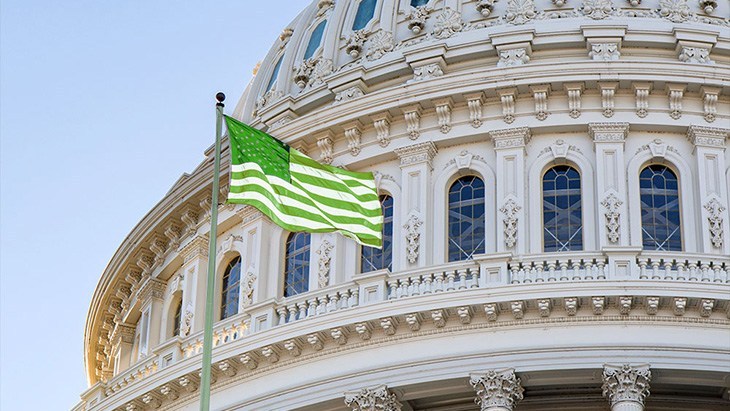
House lawmakers are preparing for a September floor vote on legislation – The Marijuana Opportunity, Reinvestment, and Expungement Act a/k/a The MORE Act — to remove marijuana from the federal Controlled Substances Act. The forthcoming vote would mark the first time since the passage of the Controlled Substances Act of 1970, which placed cannabis in the same category as heroin as a Schedule I controlled substance, that a Congressional chamber has voted to remove marijuana from its prohibitive classification.
“Passage of The MORE Act is essential in order to truly right the wrongs of federal marijuana criminalization, and to once and for all allow the majority of states that have legalized cannabis for either medical or adult-use to embrace these policies free from the threat of undue federal prosecution or interference,” NORML Deputy Director Paul Armentano said.
You can contact your lawmakers in support of the bill in just a few clicks here.
Since the bill’s introduction last year, NORML has been a leader in the federal lobbying efforts in support of The MORE Act. To date, NORML members have sent over 100,000 messages to Congress in support of the Act’s passage.
Earlier this month, Democratic Presidential nominee Joe Biden chose California Senator Kamala Harris to be his running mate. Senator Harris is the lead sponsor of The MORE Act in the Senate. According to national polling data compiled by the Data for Progress think-tank, 62 percent of likely voters – including majorities of Democrats and Republicans – support passage of The MORE Act.
The House version of the Act, HR 3884, currently has over 85 cosponsors, including Assistant Speaker Ben Ray Lujan; Democratic Caucus Chairman Hakeem Jeffries and caucus-Vice Chair Katherine Clark; and Committee Chairs Maxine Waters, Jim McGovern, Raul Grijalva, and Nydia Velazquez; and Cannabis Caucus co-Chairs Earl Blumenauer and Barbara Lee.
Last November, members of the House Judiciary Committee advanced the House version of The MORE Act, marking the first time in history that federal lawmakers have moved forward legislation to remove (a/k/a deschedule) cannabis from the Controlled Substances Act (CSA). NORML believes that comprehensive federal marijuana policy reform is only possible via descheduling marijuana rather than by rescheduling it. Just as alcohol is not included in the CSA, thereby leaving states to be the primary regulators of their own alcohol policies, NORML maintains that cannabis should similarly be descheduled.
“Less than two years ago, we put out our blueprint outlining a path to cannabis legalization in the 116th Congress,” said Representative Earl Blumenauer, co-Chairman of the Congressional Cannabis Caucus. “Now, after many months of hard work and collaboration, we finally have a chance to end the failed policy of prohibition that has resulted in a long and shameful period of selective enforcement against people of color, especially Black men. As people across the country protest racial injustices, there’s even greater urgency for Congress to seize this historic opportunity and finally align our cannabis laws with what the majority of Americans support, while ensuring restorative justice.”
The Act would also make several other important changes to federal policy. For example, it permits physicians affiliated with the Veterans Administration for the first time to make medical marijuana recommendations to qualifying veterans who reside in legal states, and it incentivizes states to move ahead with expungement policies that will end the stigma and lost opportunities suffered by those with past, low-level cannabis convictions. If approved, The MORE Act also allows the Small Business Administration to support entrepreneurs and businesses as they seek to gain a foothold in this emerging industry.
“A House floor vote will put our federal lawmakers on record,” NORML’s Armentano said. “We will know who stands with the majority of Americans in supporting an end to the failed federal policy of marijuana prohibition, and equally importantly, we will know in Congress wishes to continue to threaten the freedom and liberty of the millions of Americans who reside in states that have enacted common-sense alternatives to cannabis criminalization.”
You can contact your lawmakers in support of the bill in just a few clicks here.















